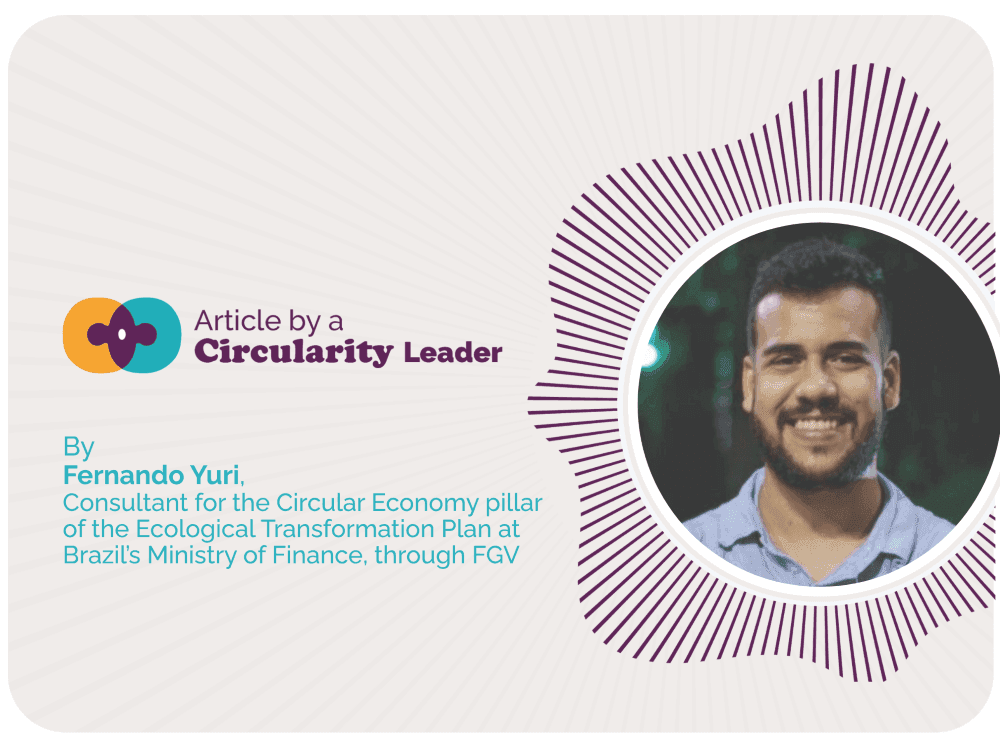
27/06/2025
Education, the contribution of tropical countries, and inequalities set the tone for COP30
By Lucas Machado, Betini Comunicação*
The value of education as a driver of social transformation, the contribution of tropical countries, and access to sustainable practices—with attention to inequality—are among the key topics expected to be discussed at the 30th United Nations Climate Change Conference (COP30), taking place this November in Belém, in the state of Pará, Brazil. These expectations were highlighted by experts and ambassadors of the Circular Movement during the live event “Circular Talks Ambassadors,” which explored the topic “Polycrisis and Environmental Footprint” on Wednesday, June 25.
Flavio Ribeiro, PhD in Environmental Sciences from the University of São Paulo (USP), emphasized the need to advance recognition of the circular economy as an effective tool for carbon management, in addition to strengthening the participation of countries.
“This is already happening, it’s feasible. I also highlight the importance of recognizing the contribution of tropical countries beyond just forest conservation in the context of climate change. We have so many practices and forms of knowledge that can serve as examples to the world and deserve to be made visible,” he said.
In the same vein, he stressed the importance of the National Circular Economy Plan, enacted in May 2025, especially in the context of the conference. A contributor to the document’s revision, Flavio advocates for greater societal engagement to ensure the plan becomes a real instrument for change.
“The plan also introduces an idea of governance. We must remember that consumption is a privilege—those who consume are those who can afford to—and talking about sustainable consumption means talking about consumption for those who have the power to choose what they consume. These choices are tied to social inclusion and the reduction of inequality,” he emphasized. For him, education—alongside innovation and culture—should guide behaviors and values in everyday life toward circularity.
The need to acknowledge Brazil’s efforts in this context is reinforced by Isabela Bonatto, who holds a master’s and PhD in Environmental Engineering from the Federal University of Santa Catarina and is a specialist in waste management.
“Brazil deserves recognition, especially because the COP will be hosted in the country,” she commented. For her, it is essential that the event embraces a plurality of contexts and knows how to balance different pressures—including capitalism, large corporations, and local realities. “I believe the UN will have to balance different pressures and redistribute the power to determine how to reduce the environmental footprint,” she noted.
In this regard, civil society mobilization also emerges as a key factor. For Professor Sueli Angelo Furlan, postdoctoral researcher and specialist in Socio-Environmental Education from the University of Cádiz in Spain and assistant professor at USP, popular participation can push governments toward more ambitious commitments.
“UN conferences are meant for the world. It will be very positive if social movements—which have always pushed the environmental agenda—take place, because they will pressure the leaders. The whole world will be able to see the contrast, and hopefully it doesn’t end with COP,” she said.
Rounding out the expectations, Christian Ullmann, an industrial designer from the University of Buenos Aires, Argentina, and a consultant in Design for the Circular Economy, emphasized the symbolic importance of COP30 taking place in Belém. For him, the choice of the Amazon as the host carries a unique weight in the global climate debate.
“It’s important that COP is held in the Amazon, because it’s one of the few places in the world where there are sustainable groups, circular communities, and Indigenous peoples,” he concluded.
*This text was automatically translated using artificial intelligence and subsequently reviewed. However, minor differences may still exist when compared to the original version in Portuguese.

